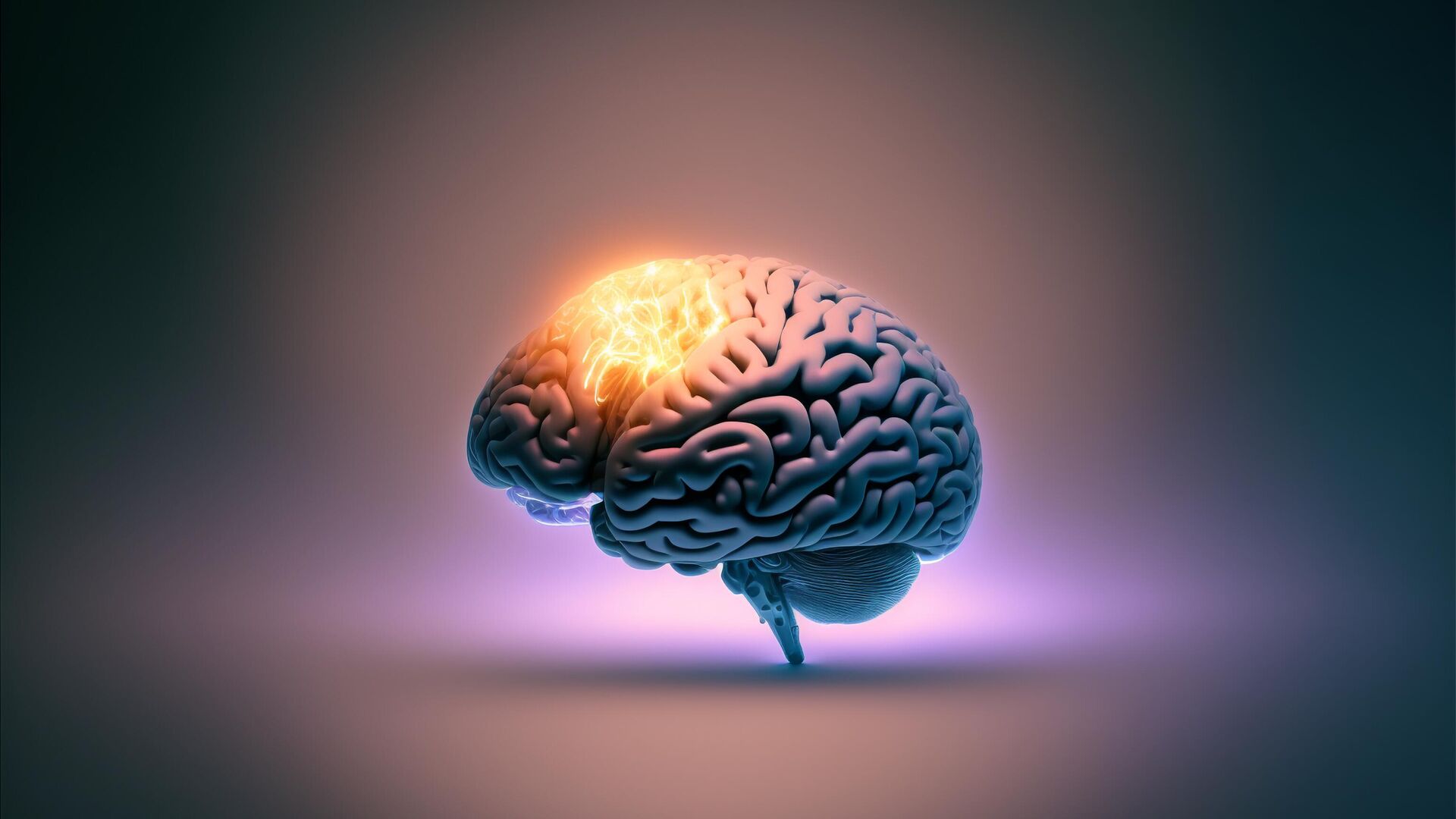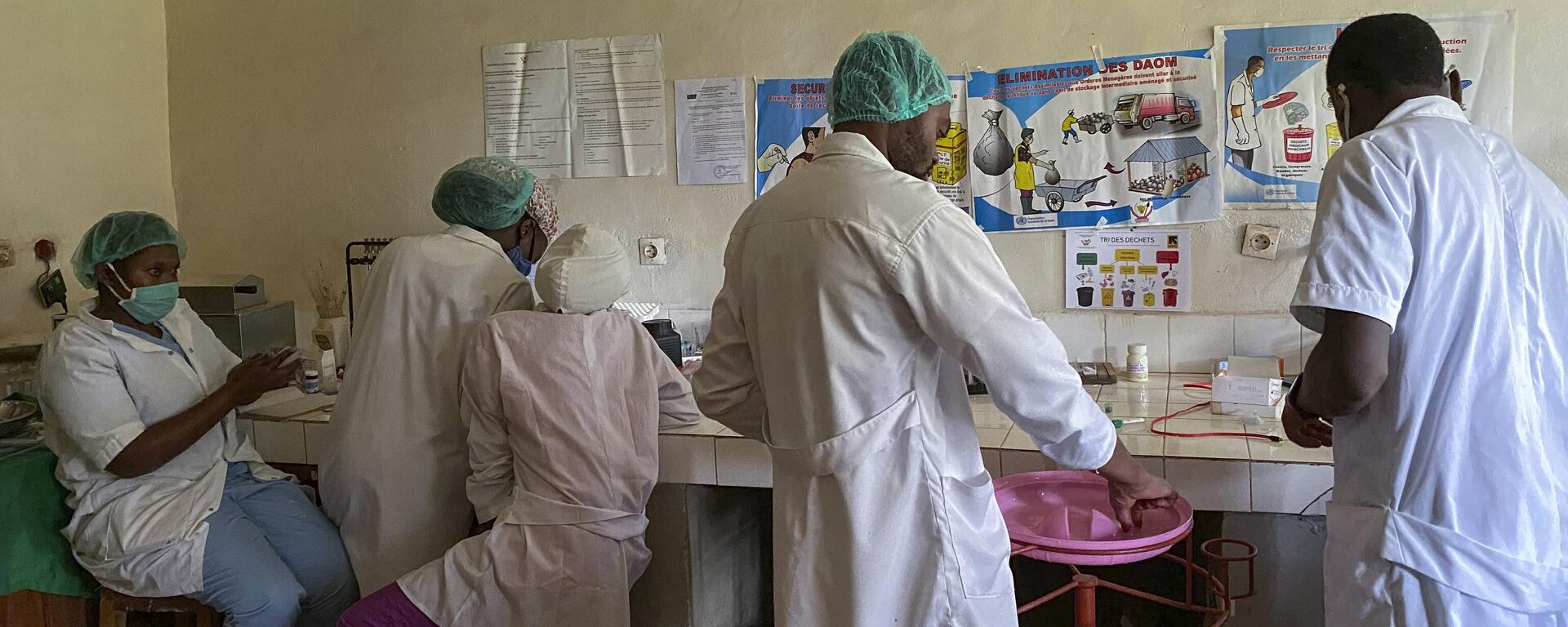https://en.sputniknews.africa/20231029/world-stroke-day-how-to-prevent-the-disease-1063167398.html
World Stroke Day: How to Prevent the Condition
World Stroke Day: How to Prevent the Condition
Sputnik Africa
World Stroke Day is observed on 29 October to raise awareness about stroke prevention and treatment. The first such day was in 2004, when the World Health... 29.10.2023, Sputnik Africa
2023-10-29T14:01+0100
2023-10-29T14:01+0100
2023-10-29T14:31+0100
opinion
health
world health organization (who)
healthcare
holidays
lifestyle
sport
international
africa in details
https://cdn1.img.sputniknews.africa/img/07e7/0a/1d/1063171402_0:160:3072:1888_1920x0_80_0_0_204046dbe9e2624cc2ef1e50ad3bd7e4.jpg
In honor of World Stroke Day, Sputnik Africa sat down with an expert to discuss how to prevent a stroke, how to recognize a stroke and how to help someone you know in an emergency.To reduce the risk of stroke, it is important to identify and treat the conditions that contribute to it, known as modifiable risk factors, Dr Patty Francis, current President of Neurology Association of South Africa and member of the World Stroke Organization, told Sputnik Africa.These conditions include hypertension and diabetes, which can be identified by routine screening and can be treated with medication, as well as hypercholesterolemia and HIV, which are detected by a blood test.As for heart conditions that can lead to stroke, the doctor noted that there are more advanced tests to detect them, such as the 24-hour Holter monitor, a chip that's implanted and can record heart rhythms for up to five years.According to the expert, a healthy lifestyle should play an important role in preventing stroke. Francis emphasized that smoking, alcohol, obesity and low consumption of fruits and vegetables are risk factors for stroke.Francis cited stress as another modified risk factor for stroke, as it affects blood pressure and diabetes control, the need and desire to smoke, exercise, and thus indirectly increases the likelihood of stroke.In addition, Francis noted that women with autoimmune diseases who take oral contraceptives can develop stroke.How to Help a Person With a Stroke?A stroke is a decrease in blood flow to part of the brain and is accompanied by facial asymmetry, facial drooping, arm weakness, slurred speech, or difficulty expressing words, Francis said, commenting on how to recognize a stroke attack. In the case of a stroke, one must act quickly and get a patient with these signs to the nearest stroke center, where the clot that caused the stroke can be dissolved or removed. Moreover, it is important to dissolve the clot or remove it within the first hour.The doctor also said that people should watch out for a precursor to a stroke called a transient ischemic attack (TIA). In the case of such an attack, which is accompanied by certain symptoms, a stroke usually develops within seven days.If you experience such symptoms, the expert recommends that you seek urgent medical attention.Post-Stroke LifeIf a person survives a stroke, he or she needs to continue medical evaluation and monitoring of risk factors, Francis said.In addition, post-stroke patients need to improve mobility with a cane or a Zimmer frame and safety in the home and outside in terms of "steps and stairs and cobbles and things that they can't see clearly or can't navigate easily".Furthermore, people who have had a stroke experience post-stroke depression, the expert noted.The expert concluded by saying that stroke is the leading cause of disability worldwide, the third-biggest cause of death worldwide, and the second-biggest cause of death in South Africa after HIV, and needs to be taken more seriously by the general public.
https://en.sputniknews.africa/20231028/this-african-country-struggles-with-worlds-largest-cholera-epidemic-according-to-who-1063133631.html
Sputnik Africa
feedback@sputniknews.com
+74956456601
MIA „Rossiya Segodnya“
2023
Maxim Grishenkin
https://cdn1.img.sputniknews.africa/img/07e7/0a/17/1063018107_0:0:1104:1103_100x100_80_0_0_03090c85a11f5d2e8a19cf1d989443c9.jpg
Maxim Grishenkin
https://cdn1.img.sputniknews.africa/img/07e7/0a/17/1063018107_0:0:1104:1103_100x100_80_0_0_03090c85a11f5d2e8a19cf1d989443c9.jpg
News
en_EN
Sputnik Africa
feedback@sputniknews.com
+74956456601
MIA „Rossiya Segodnya“
Sputnik Africa
feedback@sputniknews.com
+74956456601
MIA „Rossiya Segodnya“
Maxim Grishenkin
https://cdn1.img.sputniknews.africa/img/07e7/0a/17/1063018107_0:0:1104:1103_100x100_80_0_0_03090c85a11f5d2e8a19cf1d989443c9.jpg
health, world health organization (who), healthcare, holidays, lifestyle, sport, international, africa in details
health, world health organization (who), healthcare, holidays, lifestyle, sport, international, africa in details
World Stroke Day: How to Prevent the Condition
14:01 29.10.2023 (Updated: 14:31 29.10.2023) World Stroke Day is observed on 29 October to raise awareness about stroke prevention and treatment. The first such day was in 2004, when the World Health Organization declared stroke a global epidemic.
In honor of World Stroke Day, Sputnik Africa sat down with an expert to discuss how to prevent a stroke, how to recognize a stroke and how to help someone you know in an emergency.
To reduce the risk of stroke, it is important to identify and treat the conditions that contribute to it, known as modifiable risk factors, Dr Patty Francis, current President of Neurology Association of South Africa and member of the World Stroke Organization, told Sputnik Africa.
These conditions include hypertension and diabetes, which
can be identified by routine screening and can be treated with medication, as well as hypercholesterolemia and HIV, which are detected by a blood test.
As for heart conditions that can lead to stroke, the doctor noted that there are more advanced tests to detect them, such as the 24-hour Holter monitor, a chip that's implanted and can record heart rhythms for up to five years.
"But population screening for hypertension, which is the world's leading cause of stroke, diabetes, cholesterol, those can be done without needing to be admitted to a hospital or too much advanced equipment," Francis believes.
According to the expert, a healthy lifestyle should play an important role in preventing stroke. Francis emphasized that smoking, alcohol, obesity and low consumption of fruits and vegetables are risk factors for stroke.
"Alcohol consumption also needs to be reduced for stroke prevention, and diabetes is partly treated with dietary change. So quit smoking, quit drinking as far as is humanly possible, reduce your body mass index, increase your exercise, increase your fruit and vegetable intake," the doctor advises.
Francis cited stress as another modified risk factor for stroke, as it affects blood pressure and diabetes control, the need and desire to smoke, exercise, and thus indirectly increases the likelihood of stroke.
In addition, Francis noted that women with autoimmune diseases who take oral contraceptives can develop stroke.
How to Help a Person With a Stroke?
A stroke is a decrease in blood flow to part of the brain and is accompanied by facial asymmetry, facial drooping, arm weakness, slurred speech, or difficulty expressing words, Francis said, commenting on how to recognize a stroke attack.
In the case of a stroke, one must act quickly and get
a patient with these signs to the nearest stroke center, where the clot that caused the stroke can be dissolved or removed. Moreover, it is important to dissolve the clot or remove it within the first hour.
"Scientific studies have shown that two million neurons die every minute when the brain is robbed of blood flow. So for every minute that clot is sitting in that vessel, it's killing two million neurons downstream of it," Francis noted.
The doctor also said that people should watch out for a precursor to a stroke called a transient ischemic attack (TIA). In the case of such an attack, which is accompanied by certain symptoms, a stroke usually develops within seven days.
"For example, [people] might experience a little bit of a speech impairment, or they might feel that their face is looking a bit droopy or feeling a bit tingly or their arm or their leg, or they may feel that their vision is blurring a little bit, but it recovers quickly," Francis explained.
If you experience such symptoms, the expert
recommends that you seek
urgent medical attention.If a person survives a stroke, he or she needs to continue medical evaluation and monitoring of risk factors, Francis said.
"Managing the medical factors that caused the stroke in the first place, managing their lifestyle factors, these individuals are often much less mobile, so exercise, lose weight, stop smoking, stop drinking alcohol," the doctor stressed.
In addition, post-stroke patients need to improve mobility with a cane or a Zimmer frame and safety in the home and outside in terms of "steps and stairs and cobbles and things that they can't see clearly or can't navigate easily".
Furthermore, people
who have had a stroke experience post-stroke depression, the expert noted.
"It is not only a reaction to loss of function, loss of occupation, or loss of identity. It is also a biological process because of brain damage," Francis explained, adding that "there's a significant economic burden after a stroke."
The expert concluded by saying that stroke is the leading cause of disability worldwide, the third-biggest cause of death worldwide, and the second-biggest cause of death in South Africa after HIV, and needs to be taken more seriously by the general public.



